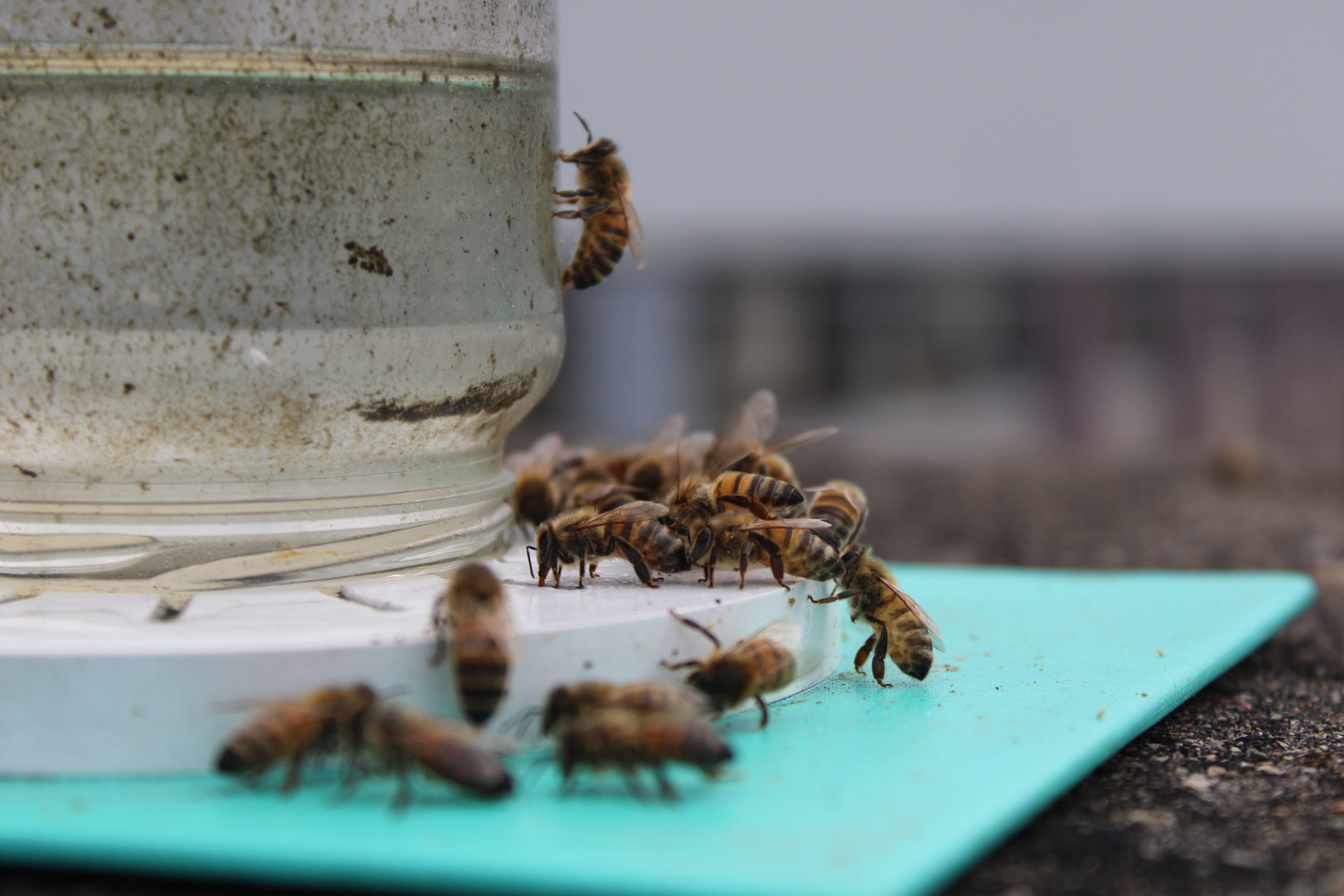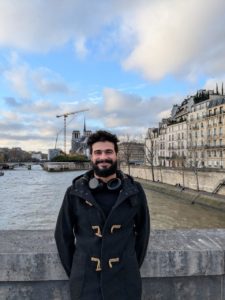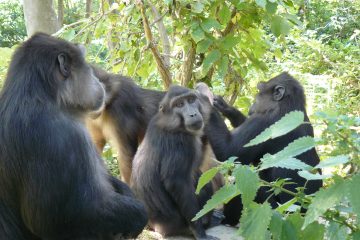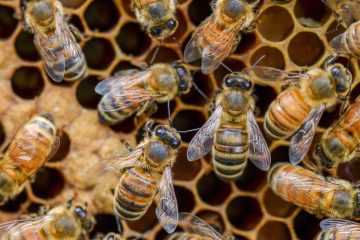
Rafael Carvalho da Silva,
Former Fyssen 2022
Louise Bestea, Gabriela de Brito Sanchez, and Martin Giurfa
In honey bees, appetitive motivation is primarily driven by the needs of the colony rather than individual needs. The regulation of appetitive behavior is achieved through the coordinated action of neuropeptides, hormones and biogenic amines, which integrate multiple signals to ensure appropriate appetitive responses. Dopamine signalling underpins a food-related wanting system that is sensitive to aversive experiences. The short neuropeptide F (sNPF) enhances appetitive responsiveness, food intake and behavioral and neural responsiveness to food-related odorants. Additionally, it facilitates appetitive learning and memory. On the contrary, tachykininrelated peptides (TRPs) inhibit appetitive responses. Physiological changes during the transition to the foraging state lead to distinct patterns of insulin and adipokinetic hormone (AKH) signaling, different from those seen in solitary insects, indicating that social life had significant consequences on the systems controlling appetitive motivation. Overall, studying the neural bases of appetitive behavior in bees reveals unique aspects that arise from their social lifestyle.
…
READ THE ARTICLE
THE TINY BRAINS OFWASPS CAN LEARN AND REMEMBER INFORMATION
Rafael Carvalho da Silva, PhD
Neuroscience Paris-Seine – Institut de Biologie Paris-Seine, CNRS, INSERM, Sorbonne University, F-75005 Paris, France
Rafael Carvalho da Silva is currently completing a postdoctoral fellowship at the Institut de Biologie Paris-Seine under the supervision of Prof. Dr. Martin Giurfa and Dr. Gabriela de Brito Sanchez, funded by the Fyssen Foundation. A Brazilian biologist and entomologist, Rafael’s research focuses on understanding how endogenous and exogenous factors shape the behavior, communication, and organization of social insect societies. While in Brazil, Rafael investigated the role of hydrocarbons in communication within social wasp colonies under the supervision of Prof. Dr. Fabio Santos do Nascimento and Dr. Cintia Akemi Oi. During his PhD, he conducted an internship in Belgium at the  laboratory of Prof. Dr. Tom Wenseleers, where he studied the effects of juvenile hormone on the social traits of European wasps. He also completed an internship in the USA at the laboratory of Prof. Dr. Floria M.K. Uy, exploring the molecular mechanisms underlying the host-parasite system Polistes-Xenos. Currently, Rafael is concluding his postdoctoral research, which focuses on the effects of social pheromones and the short-neuropeptide F on modulating appetitive decision-making in honeybees. He recently had the opportunity to publish a review paper in collaboration with his team members where they synthetized how different molecules acting at the neural level are relevant for promoting appetitive behavior in honeybees. Soon, he will begin a new postdoctoral position under the supervision of Dr. Thibaud Monnin, funded by the SOUND initiative at the Institut d’Écologie et des Sciences de l’Environnement de Paris (iEES Paris). This project will explore the effects of heat stress on ant societies, investigating responses at molecular, behavioral, and architectural levels. In addition to his main research interests, he also tries to engage in scientific outreach by adapting some of his research papers to children and teenagers.
laboratory of Prof. Dr. Tom Wenseleers, where he studied the effects of juvenile hormone on the social traits of European wasps. He also completed an internship in the USA at the laboratory of Prof. Dr. Floria M.K. Uy, exploring the molecular mechanisms underlying the host-parasite system Polistes-Xenos. Currently, Rafael is concluding his postdoctoral research, which focuses on the effects of social pheromones and the short-neuropeptide F on modulating appetitive decision-making in honeybees. He recently had the opportunity to publish a review paper in collaboration with his team members where they synthetized how different molecules acting at the neural level are relevant for promoting appetitive behavior in honeybees. Soon, he will begin a new postdoctoral position under the supervision of Dr. Thibaud Monnin, funded by the SOUND initiative at the Institut d’Écologie et des Sciences de l’Environnement de Paris (iEES Paris). This project will explore the effects of heat stress on ant societies, investigating responses at molecular, behavioral, and architectural levels. In addition to his main research interests, he also tries to engage in scientific outreach by adapting some of his research papers to children and teenagers.


